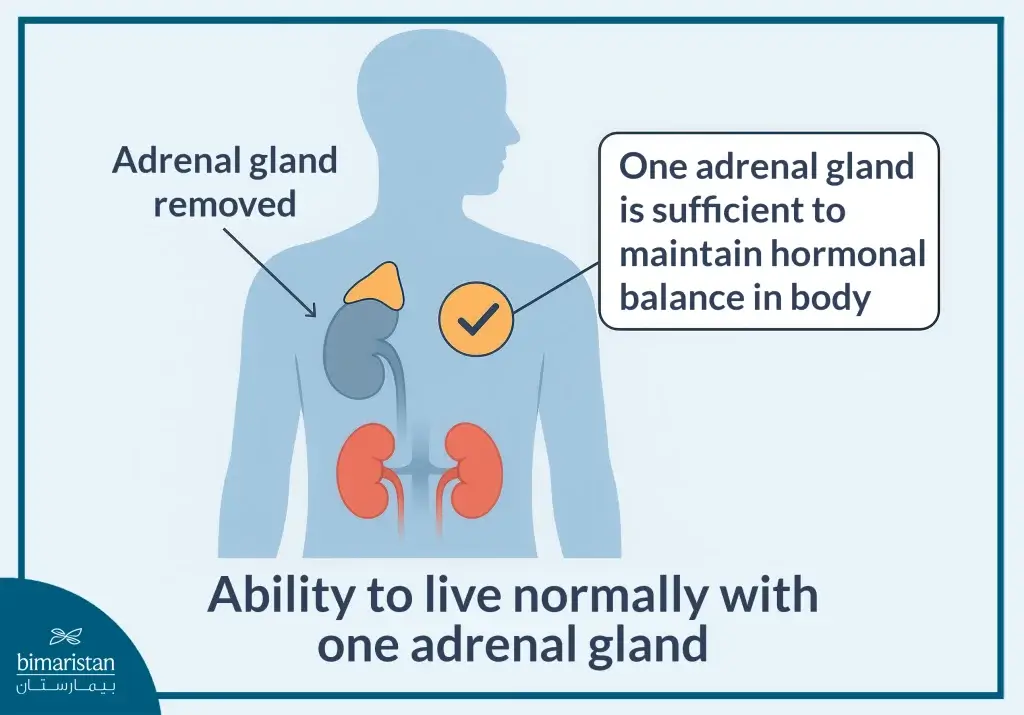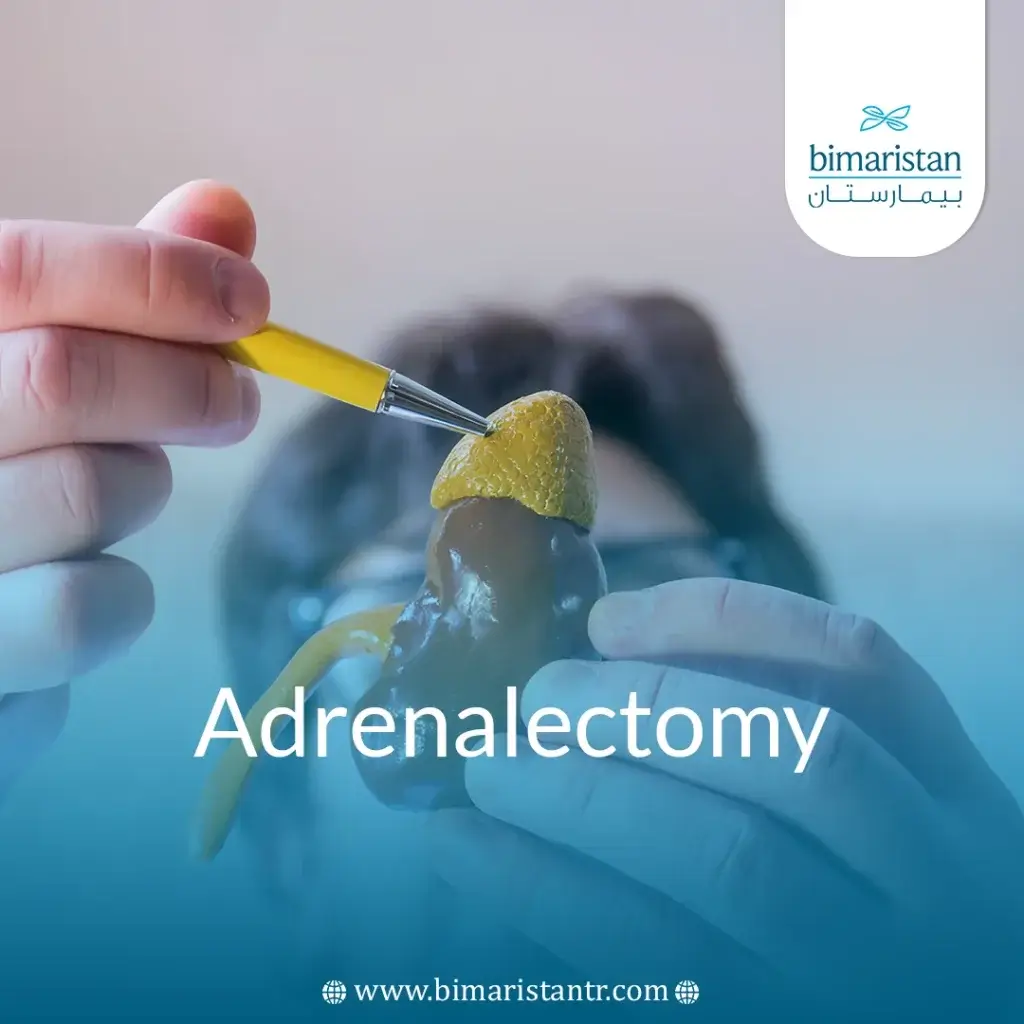Adrenalectomy is a surgical procedure in which one or both of the adrenal glands are removed, usually to treat certain diseases such as adrenal tumors or hormone overproduction.
This operation has witnessed a great development in Turkey in recent years, as it has become performed using the latest surgical techniques such as laparoscopic surgery and robotic surgery, Turkish hospitals are characterized by the presence of specialized medical teams and extensive experience in endocrine surgeries in addition to an appropriate treatment cost compared to many European countries while maintaining a world-class medical level.
What is the adrenal gland?
The adrenal gland plays an important role in regulating blood pressure, stress response, water and salt balance, and blood sugar levels. The adrenal gland secretes hormones such as cortisol, aldosterone, adrenaline, and noradrenaline.
Why is an adrenalectomy performed?
Resection is performed in cases such as:
- Adrenal tumors, whether benign or malignant, such as adrenocortical tumors and functional tumors that secrete excessive hormones
- Overproduction of hormones such as:
- Cushing’s syndrome: Increased cortisol secretion.
- Conn’s syndrome (primary hyperaldosteronism): Leads to high blood pressure and potassium deficiency.
- Pheochromocytoma: A rare tumor that produces large amounts of adrenaline.
- Abdominal or retroperitoneal mass >4 cm on imaging.
In these cases, the affected gland is permanently removed if drug treatments are unsuccessful in regulating hormones.
How is adrenalectomy performed?
Adrenalectomy is performed in two main ways: open surgical resection and laparoscopic adrenalectomy, and the choice of method depends on the size and type of the tumor and the patient’s health status.
Open surgical resection
It is performed through a large surgical incision in the abdomen or back, mainly used in cases of large or malignant tumors as well as in cases that are difficult to reach by laparoscopy, although it is more invasive compared to laparoscopy, but it provides the surgeon with a better vision and greater control, making it the ideal choice in complex cases that require high precision to ensure complete removal of the tumor, but this method may be accompanied by a longer recovery period and greater pain after the operation compared to laparoscopic surgery.
Laparoscopic adrenalectomy
Today, laparoscopic adrenalectomy is the most common option, performed through small incisions using a camera and precision instruments, usually used in benign or medium-sized cases, this method is characterized by small wounds, invisible scars, less pain after the operation, faster recovery and a quick return to daily activity, this type of operation is considered safe and effective, especially in specialized centers, and patients return to normal activity within a few days after surgery.
Is it possible to live with one adrenal gland?
Yes, it is possible to live normally if the other adrenal gland is healthy and functioning well, as one adrenal gland is enough to produce the hormones the body normally needs after the affected gland is removed.

Recovery period after adrenalectomy
The length of stay in the hospital usually ranges from 2 to 4 days, depending on the type of surgery, the general condition of the patient and the presence of any complications after the operation, most patients can return to work within 2 to 3 weeks after the operation, especially if the work is office-based or does not require great physical effort or there are no complications after surgery and the pain is well controlled, but those who have jobs that require movement or lifting weights may need a slightly longer recovery period.
Post-op: Is hormone therapy needed?
After adrenalectomy, your doctor determines the need for hormone replacement therapy based on whether one or both glands were removed:
- If only one gland is removed: In most cases, the patient does not need permanent treatment, as the other adrenal gland gradually makes up for the deficiency, but the doctor may prescribe cortisone temporarily during the first few days or weeks after surgery until the remaining gland adjusts.
- If both glands are removed: In this case, the body loses the ability to produce the hormone cortisol naturally and compensatory therapy becomes necessary for life, medications such as hydrocortisone or prednisolone are prescribed to compensate for this deficiency.
Regular follow-up is also an essential part of treatment, as it is essential that the patient adheres to a follow-up schedule with an endocrinologist to monitor hormone levels and ensure they are balanced after adrenalectomy, adjust the dose of medications when needed—especially during periods of illness or stress—ensure that the body is adapting well post-adrenalectomy, and discuss any unusual symptoms such as extreme fatigue, low blood pressure, or changes in weight.
Sources:
- Johns Hopkins Medicine. (n.d.). Adrenalectomy
- Li, A. Y., & Dream, S. (2023, July 24). Adrenalectomy. In StatPearls. StatPearls Publishing

